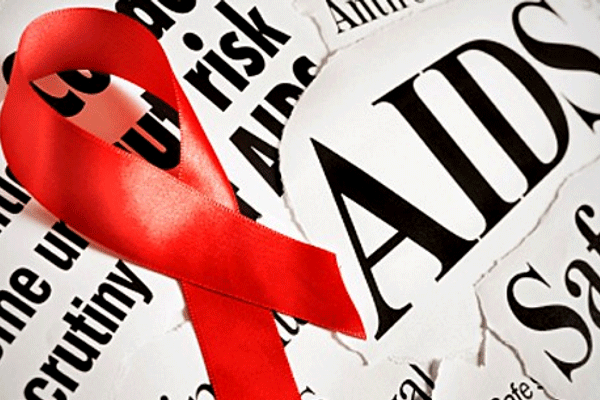
At the end of this week the Government of Canada will host the fifth replenishment conference of the Global fund to fight AIDS, tuberculosis and Malaria.
Bishow Parajuli
Zimbabwe has already been involved — a key advocate for the replenishment has been the young Zimbabwean activist Loyce Maturu. She is giving voice to a whole generation of young people the world over who are confronting HIV and securing an AIDS-free future.
The Global Fund to Fight HIV and AIDS, TB and Malaria has provided support to Zimbabwe ever since its very first round of grants. Now, 15 years after the foundation of the fund, it is more important than ever. The Global Fund’s current grants to Zimbabwe total $709 million, of which $611 million goes to HIV, $59 million to malaria and $39 million to TB, over the period 2014 to 2017.
At the peak of the epidemic in Zimbabwe in the late 1990s nearly 30% of the population was living with HIV and AIDS was declared a national emergency. That unleashed a massive effort that halved the size of the epidemic.
There are 915 000 Zimbabweans now on anti-retroviral treatment — two thirds of them with medicines supplied through Global Fund resources. But at least 300 000 more need to be on treatment as soon as possible so they can look forward to a normal lifespan.
The Government of Zimbabwe, working with United Nations as well as other local and international partners, has put in place a sound multi-sectoral national response that both reflects the local realities and international commitments made through the Agenda 2030 for Sustainable Development Goals on HIV/AIDS. These commitments are in tandem with the ending AIDS agenda where 90% of all people living with HIV know their status, at least 90% of HIV positive people receive sustained treatment, and 90% of those on treatment have durable viral load suppression by 2020.
- Chamisa under fire over US$120K donation
- Mavhunga puts DeMbare into Chibuku quarterfinals
- Pension funds bet on Cabora Bassa oilfields
- Councils defy govt fire tender directive
Keep Reading
UNDP, as the principal recipient for the HIV grant, has been able to get HIV medicines supplied to the country at lower and lower costs — in the latest procurements we have achieved a new $20 million of savings from reduced unit costs and lower transport fees, every cent of which is ploughed back into the grant so that more Zimbabweans can access treatment and make the UNAIDS 90.90.90 goals one step closer.
Our joint efforts through the provision of treatment and prevention are reaping significant rewards for the people of Zimbabwe. However, we have a long way, particularly on our prevention efforts.
The new infection rates albeit on the decline, are still far too high at 64 000 annually. Behind every data point is an individual and a family and a community that suffers, that hopes, that deals with death and celebrates life.
For a response to be effective and successful over time, it has to go beyond immediate care and livelihood needs, to understanding and addressing the underlying causes and consequences of attitudes and behaviours that help such an epidemic to thrive.
Issues of gender inequality and disempowerment, economic hardship, practices that encourage sexual and gender-based violence are contexts that enable this virus to flourish. The evidence is clear — in order to stop this epidemic, these factors must be addressed head on, just as much as providing access to ARVs, voluntary testing and counseling.
In the early stages of the response, information was central, and still is necessary, but it is not sufficient to end the epidemic. Changing attitudes and risky behaviour remains a challenge to the average Zimbabwean. While unprotected sex is certainly the most important risk in Zimbabwe, the practice of having more than one partner at the same time, especially if you are married or living together, seems to be fueling higher rates of infection in Zimbabwe.
HIV and AIDS is still very much with us, there should be no room for complacency. Ending this pandemic requires each of us to work together, and with an intention and intensity that we are yet to see. Some of us will say that the risky behaviours and lack of will is ‘cultural’ or ’traditional’, however, if part of a tradition is a problem, it has to change.
This is a world with unprecedented access to information, knowledge and expertise and resources, leaving us with few excuses for not succeeding. Changed attitudes and behaviours must become the norm and the culture. This cannot be addressed by better project design.
It is driven by leadership vision and commitment to achieve such change at all levels, where a people’s courage and determination to do away with this epidemic prevails. We need to reinvent HIV prevention for every new generation of young people.
This needs a collective response and the UN system will work with the Global Fund in an integrated response — treatment access for adolescents and youth, strengthened education, cash transfers for the most vulnerable, attention to hotspots and key populations, girls’ empowerment and an end to gender violence.
To be very topical, we must also make sure that responses to humanitarian emergencies such as the current food insecurity fully take into account the extra stresses on families of HIV.
The UN in Zimbabwe, through the 2016-2020 Zimbabwe United Nations Development Assistance Framework, will continue to support fast-tracking efforts to end the AIDS epidemic by fostering innovation, securing sustainable financing and strengthening health systems and resilience of communities, promoting human rights and gender equality as well as securing access to HIV prevention and treatment services.
Bishow Parajuli is UN Resident Coordinator and UNDP Resident Representative in Zimbabwe












